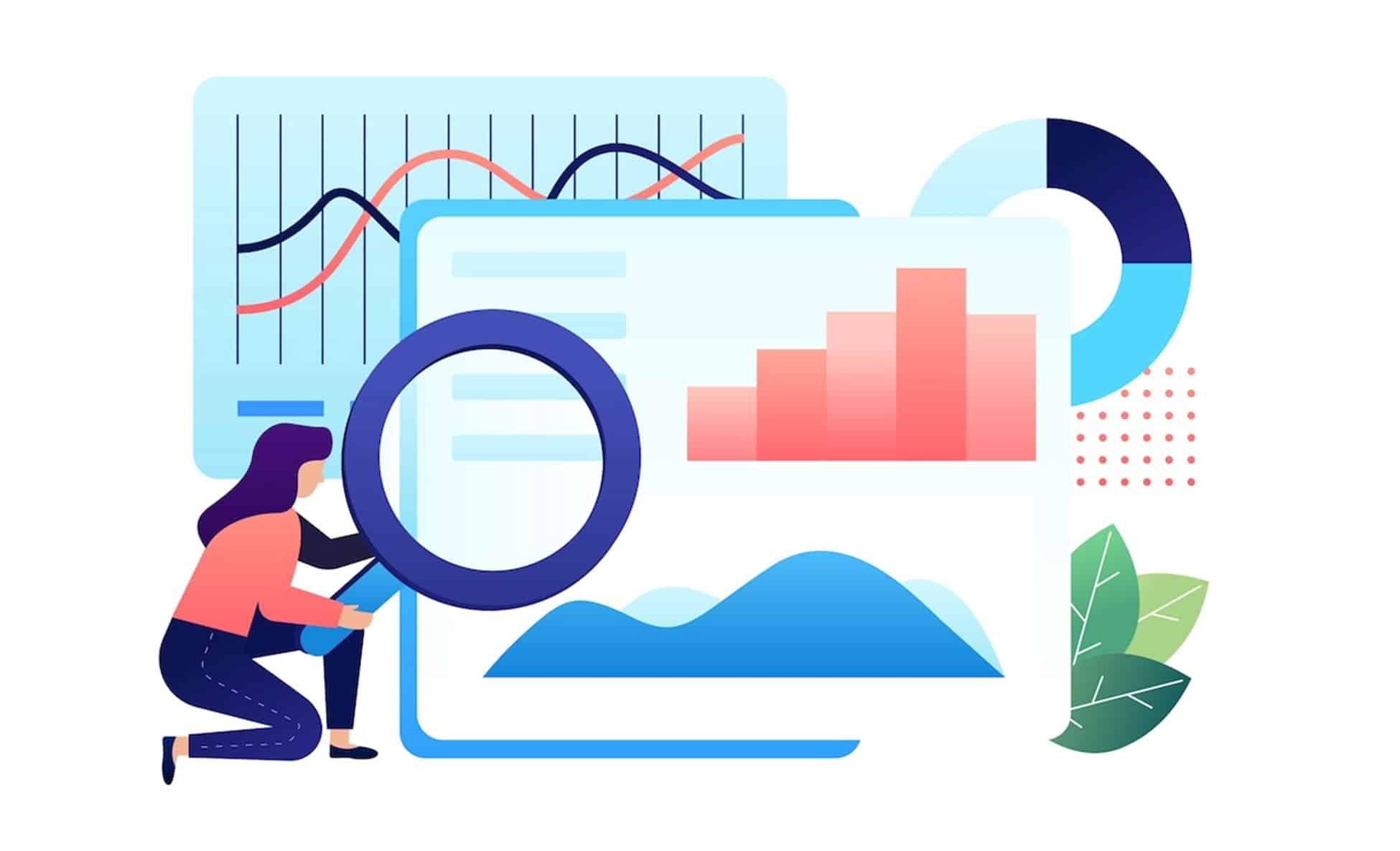
Learn how to harness the power of analytics to make informed and strategic business decisions with our comprehensive guide for managers.
Making Better Decisions with Business Analytical Tools
In today’s data-driven world, businesses are constantly faced with the challenge of making informed decisions to stay competitive. The abundance of information available can be overwhelming, but with the power of business analytical tools, managers can transform data into valuable insights to guide their decision-making process. This guide aims to provide managers with a comprehensive understanding of analytics and its role in business, as well as practical strategies for implementing analytical tools into their business strategies.
Understanding the Power of Analytics in Business
Analytics is the process of analyzing data to uncover patterns, trends, and insights that can inform decision making. In the business context, analytics provides managers with a systematic approach to collect, analyze, and interpret data, enabling them to make data-driven decisions. By leveraging analytics, businesses can gain a competitive advantage, optimize operations, and improve overall performance.
![]()
Moreover, analytics is not just limited to historical data analysis; it also involves predictive analytics, which uses data, statistical algorithms, and machine learning techniques to identify the likelihood of future outcomes based on historical data. This forward-looking approach empowers businesses to anticipate trends, forecast demand, and proactively address potential challenges.
Defining Business Analytics
Business analytics refers to the practice of using data and statistical methods to assess past performance, gain insights, and make informed predictions about future outcomes. It involves using techniques such as data mining, predictive modeling, and machine learning to extract meaningful information from large datasets. The goal of business analytics is to provide actionable insights that can drive strategic decision-making.
Furthermore, business analytics encompasses a wide range of analytical techniques, including descriptive analytics, diagnostic analytics, prescriptive analytics, and cognitive analytics. According to Investopedia, descriptive analytics focuses on summarizing historical data to understand past performance, while diagnostic analytics delves deeper into data to identify the root causes of outcomes. Prescriptive analytics suggests actions to optimize outcomes based on the insights gained, and cognitive analytics involves advanced technologies like artificial intelligence to simulate human thought processes.
The Role of Analytics in Decision Making
Analytics plays a crucial role in decision making by providing managers with evidence-based insights. Instead of relying solely on intuition or experience, managers can use analytics to objectively evaluate various options and predict the outcomes of different decisions. By incorporating data and analysis into the decision-making process, managers can minimize risks, optimize resource allocation, and achieve better outcomes.
Moreover, analytics enables businesses to conduct scenario analysis, where different business scenarios are simulated based on various assumptions and inputs. This helps in evaluating the potential impact of different strategies and making informed decisions that are backed by data-driven insights. Additionally, analytics facilitates real-time decision-making by providing up-to-date information and predictive models that can guide managers in responding swiftly to changing market conditions and emerging trends.
Key Components of Business Analytics
Successful implementation of analytics requires understanding the key components involved in the process. This section will explore two essential components: data collection and management, and data analysis and interpretation. Business analytical tools can help you achieve both sets of tasks.
Data Collection and Management
The foundation of effective analytics is high-quality data. Collecting relevant and accurate data is crucial for making reliable insights and predictions. Managers should identify the key data sources within their organization and establish robust data collection methods. Additionally, it is important to ensure data integrity through proper storage, organization, and governance practices.
Moreover, data collection is not a one-time task but an ongoing process. Organizations need to continuously evaluate and update their data collection methods to adapt to changing business needs and technological advancements. This iterative approach ensures that the data being collected remains relevant and up-to-date, providing a solid foundation for accurate analysis and decision-making.
Data Analysis and Interpretation
Once the data is collected, it needs to be analyzed and interpreted to extract meaningful insights. Statistical techniques, data visualization tools, and predictive models can be employed to uncover patterns and relationships within the data. Interpreting the analysis results requires domain knowledge and critical thinking to derive actionable insights that guide decision making.
Furthermore, data analysis is not just about crunching numbers; it also involves storytelling with data. Communicating the findings in a clear and compelling manner is essential for driving understanding and buy-in from stakeholders. Visualizations such as charts, graphs, and dashboards play a crucial role in presenting complex data analysis results in a digestible format, enabling decision-makers to grasp the key takeaways quickly and effectively.
Implementing Analytics in Your Business Strategy
Having a solid understanding of analytics is essential, but it is equally important to know how to implement it effectively into your business strategy. This section will explore two key aspects: choosing the right analytics tools and building an analytics team.

Analytics has become a cornerstone of modern business strategy, providing companies with valuable insights that can drive decision-making and improve performance. By harnessing the power of data, businesses can gain a competitive edge and adapt to changing market conditions more effectively.
Choosing the Right Business Analytical Tools
With the multitude of analytics tools available, it is crucial for managers to select the tools that best align with their business objectives and requirements. Different business analytical tools offer various functionalities such as data visualization, predictive modeling, and data integration. Conducting thorough research, considering business needs, and evaluating user-friendliness and cost are necessary steps in making an informed decision.
Furthermore, it is essential to consider scalability and compatibility with existing systems when choosing analytics tools. Scalability ensures that the tools can grow with the business and handle increasing amounts of data, while compatibility ensures seamless integration with other software platforms used within the organization.
Building an Analytics Team
Implementing analytics in an organization requires a team with the necessary skill sets and expertise. Hiring individuals skilled in data analytics, statistics, and programming is essential. Moreover, fostering a data-driven culture within the organization is crucial to encourage collaboration and make analytics a fundamental aspect of decision making.
Creating a diverse analytics team with a mix of technical and business acumen can lead to more comprehensive insights and innovative solutions. Encouraging continuous learning and professional development within the team can also ensure that they stay abreast of the latest trends and technologies in the rapidly evolving field of analytics.
Overcoming Challenges in Business Analytics
While analytics offers tremendous opportunities, it also comes with its own set of challenges. This section highlights two common challenges faced by managers: data privacy and security, and ensuring data quality and accuracy.
Dealing with Data Privacy and Security
With the increased reliance on data in decision making, ensuring the privacy and security of sensitive information becomes paramount. Managers must adhere to relevant data protection regulations and implement robust security measures to safeguard confidential data. Establishing clear policies and training employees on data handling practices is essential to minimize the risk of data breaches.
In today’s interconnected digital ecosystem, the threat landscape is constantly evolving, making it imperative for organizations to stay vigilant and proactive in their approach to data privacy and security. From encryption protocols to access control mechanisms, every layer of defense plays a crucial role in fortifying the data fortress and mitigating potential vulnerabilities.
Ensuring Data Quality and Accuracy
High-quality data is essential for accurate analysis and reliable insights. Data quality can be compromised due to various factors, including human error, incomplete data, and data inconsistencies. Implementing data validation processes, conducting regular data audits, and investing in data quality management tools are effective ways to enhance data accuracy and improve the overall quality of insights derived from analytics.
Moreover, the quest for data accuracy is not merely a technical endeavor but a strategic imperative that requires organizational commitment and a culture of continuous improvement. By fostering a data-centric mindset across all levels of the organization and incentivizing data quality initiatives, businesses can cultivate a data-driven culture that serves as the bedrock for informed decision-making and sustainable growth.
Measuring the Impact of Business Analytical Tools
To truly leverage analytical tools, managers need to measure their impact on their business. This section explores two aspects of measuring impact: evaluating business performance through analytics and continuous improvement through analytics insights.

Evaluating Business Performance through Analytics
Analytics can provide valuable metrics and Key Performance Indicators (KPIs) to assess business performance. By tracking and analyzing these metrics, managers can gain insights into the effectiveness of their strategies and make data-driven adjustments as necessary. Regular performance evaluations help identify areas for improvement and guide decision making to maximize business success.
Continuous Improvement through Analytics Insights
Analytics is not a one-time solution but an ongoing process. Leveraging analytics insights to make continuous improvements is key to staying competitive. By integrating analytics into standard operating procedures, managers can identify opportunities for optimization, streamline processes, and proactively address potential challenges before they become significant issues.
Argos Software: Your Analytics Partner
Unlock the full potential of your analytics journey with Argos Software. Our solutions are designed to seamlessly integrate into your business strategy, providing intuitive data collection, advanced analysis, and insightful reporting capabilities. With Argos Software, you gain access to powerful analytical tools that simplify data management and interpretation, enabling you to focus on what truly matters—making strategic decisions backed by comprehensive data insights.
Conclusion
Leveraging analytics and business analytical tools are crucial for managers to make better business decisions. By understanding the power of analytics in business, recognizing the key components of business analytics, implementing analytics effectively, overcoming challenges, and measuring the impact of analytics, managers can harness the full potential of data-driven decision making. With business analytical tools, managers can confidently navigate the ever-changing business landscape and achieve sustainable success.
Ready to Elevate Your Analytics Strategy?
Embrace the power of informed decision-making with Argos Software. Discover more about how our business analytics solutions can transform your business approach or request a demo today. Let Argos Software guide you to analytics excellence, driving your business towards unparalleled success.



